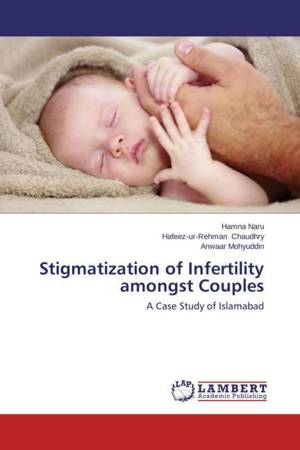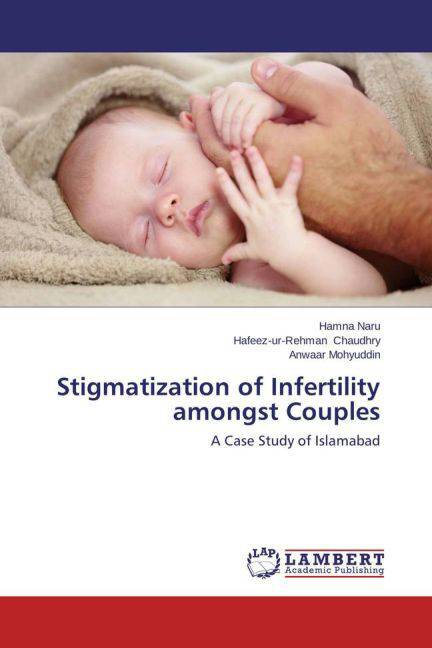
Bedankt voor het vertrouwen het afgelopen jaar! Om jou te bedanken bieden we GRATIS verzending (in België) aan op alles gedurende de hele maand januari.
- Afhalen na 1 uur in een winkel met voorraad
- In januari gratis thuislevering in België
- Ruim aanbod met 7 miljoen producten
Bedankt voor het vertrouwen het afgelopen jaar! Om jou te bedanken bieden we GRATIS verzending (in België) aan op alles gedurende de hele maand januari.
- Afhalen na 1 uur in een winkel met voorraad
- In januari gratis thuislevering in België
- Ruim aanbod met 7 miljoen producten
Zoeken
Stigmatization of Infertility amongst Couples
A Case Study of Islamabad
Hamna Naru, Hafeez-ur-Rehman Chaudhry, Anwaar Mohyuddin
Paperback | Engels
€ 55,45
+ 110 punten
Omschrijving
Infertility is an important reproductive issue prevailing in the society because the production of offspring is necessary for the continuation of society. In Pakistan, fertility is related to women and is considered an important part of life. It is assumed that soon after the marriage a couple will prove itself to be fruitful. The present study was conducted to deal with the various aspects of individual s life which are affected by infertility. It highlighted the causes of infertility in males and females and what are the psychological and social problems of infertile among the couple. Infertility is not a problem of a single person rather it affects both partners and how infertility affects the relationship of husband and wife was also studied. The basic aim of the study was to explore the stigmatization of infertility among the infertile couples in Islamabad. Infertility threatened the individual to be labeled as incomplete, useless, barren and abnormal person, which caused lack of confidence, respect and loss of status in the society. The social support by the family, friends and partners has however, played a vital role in dealing with stigmatization.
Specificaties
Betrokkenen
- Auteur(s):
- Uitgeverij:
Inhoud
- Aantal bladzijden:
- 124
- Taal:
- Engels
Eigenschappen
- Productcode (EAN):
- 9783659471728
- Uitvoering:
- Paperback
- Afmetingen:
- 150 mm x 220 mm

Alleen bij Standaard Boekhandel
+ 110 punten op je klantenkaart van Standaard Boekhandel
Beoordelingen
We publiceren alleen reviews die voldoen aan de voorwaarden voor reviews. Bekijk onze voorwaarden voor reviews.









